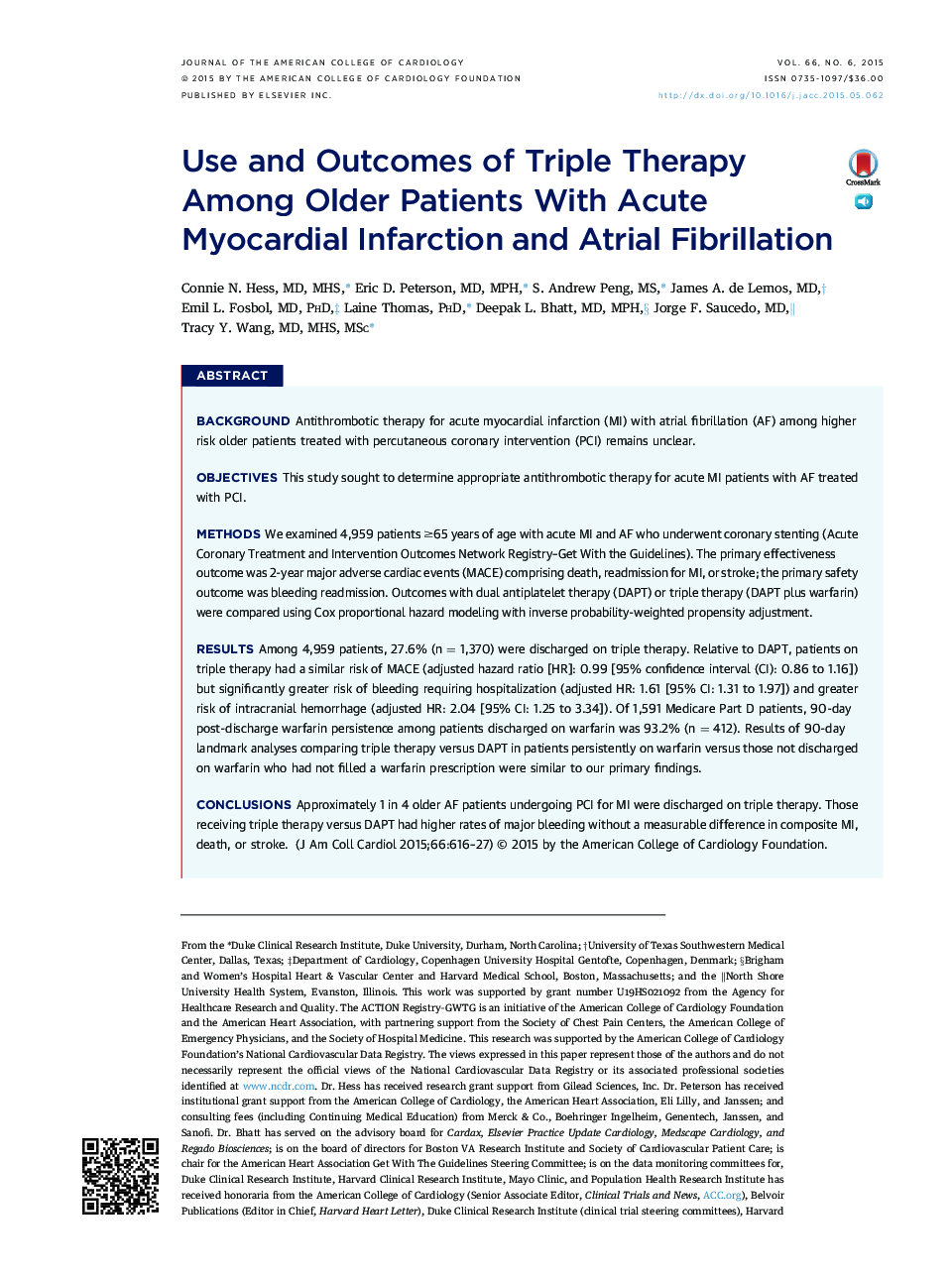| Article ID | Journal | Published Year | Pages | File Type |
|---|---|---|---|---|
| 2943686 | Journal of the American College of Cardiology | 2015 | 12 Pages |
BackgroundAntithrombotic therapy for acute myocardial infarction (MI) with atrial fibrillation (AF) among higher risk older patients treated with percutaneous coronary intervention (PCI) remains unclear.ObjectivesThis study sought to determine appropriate antithrombotic therapy for acute MI patients with AF treated with PCI.MethodsWe examined 4,959 patients ≥65 years of age with acute MI and AF who underwent coronary stenting (Acute Coronary Treatment and Intervention Outcomes Network Registry–Get With the Guidelines). The primary effectiveness outcome was 2-year major adverse cardiac events (MACE) comprising death, readmission for MI, or stroke; the primary safety outcome was bleeding readmission. Outcomes with dual antiplatelet therapy (DAPT) or triple therapy (DAPT plus warfarin) were compared using Cox proportional hazard modeling with inverse probability-weighted propensity adjustment.ResultsAmong 4,959 patients, 27.6% (n = 1,370) were discharged on triple therapy. Relative to DAPT, patients on triple therapy had a similar risk of MACE (adjusted hazard ratio [HR]: 0.99 [95% confidence interval (CI): 0.86 to 1.16]) but significantly greater risk of bleeding requiring hospitalization (adjusted HR: 1.61 [95% CI: 1.31 to 1.97]) and greater risk of intracranial hemorrhage (adjusted HR: 2.04 [95% CI: 1.25 to 3.34]). Of 1,591 Medicare Part D patients, 90-day post-discharge warfarin persistence among patients discharged on warfarin was 93.2% (n = 412). Results of 90-day landmark analyses comparing triple therapy versus DAPT in patients persistently on warfarin versus those not discharged on warfarin who had not filled a warfarin prescription were similar to our primary findings.ConclusionsApproximately 1 in 4 older AF patients undergoing PCI for MI were discharged on triple therapy. Those receiving triple therapy versus DAPT had higher rates of major bleeding without a measurable difference in composite MI, death, or stroke.
